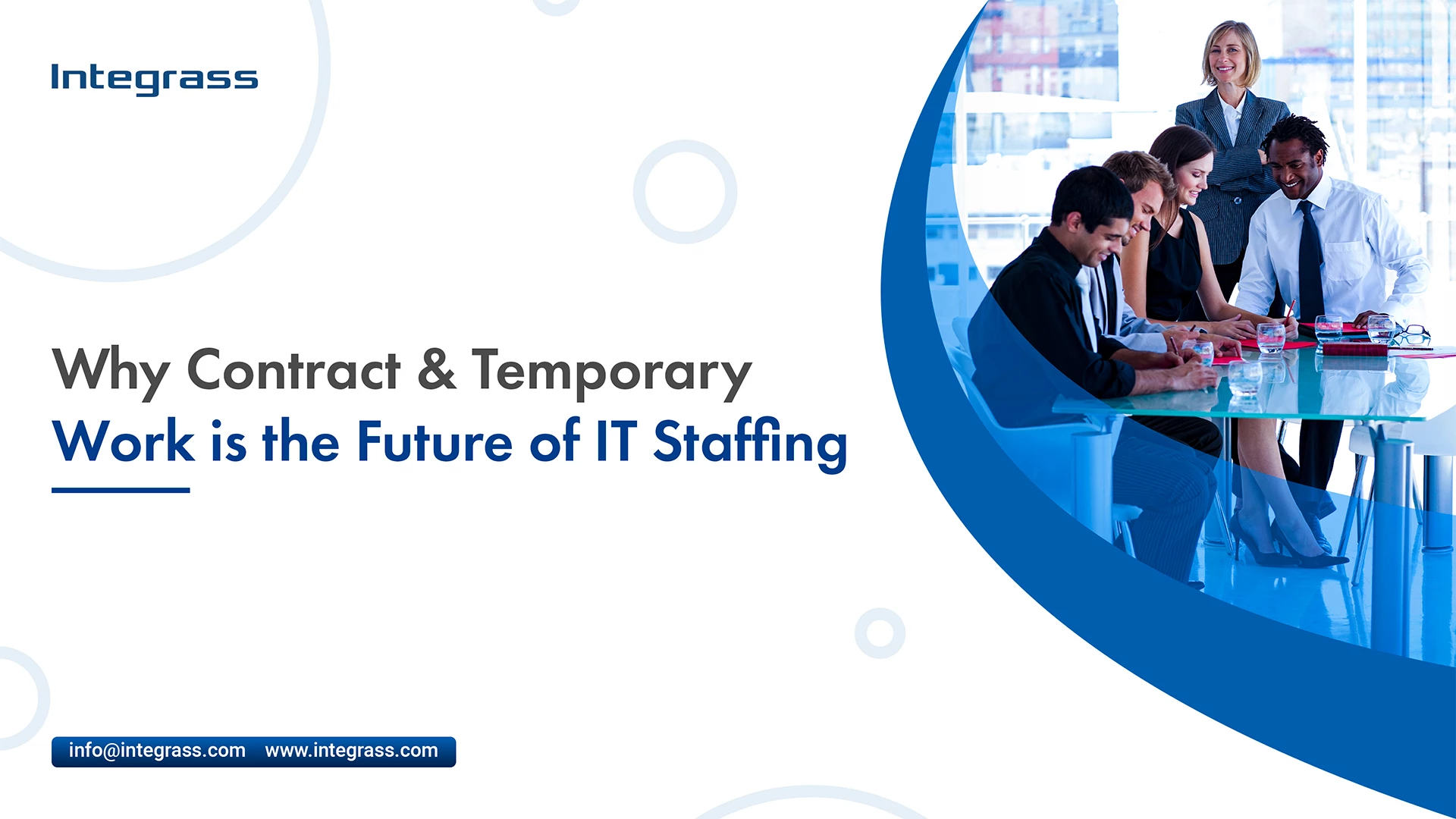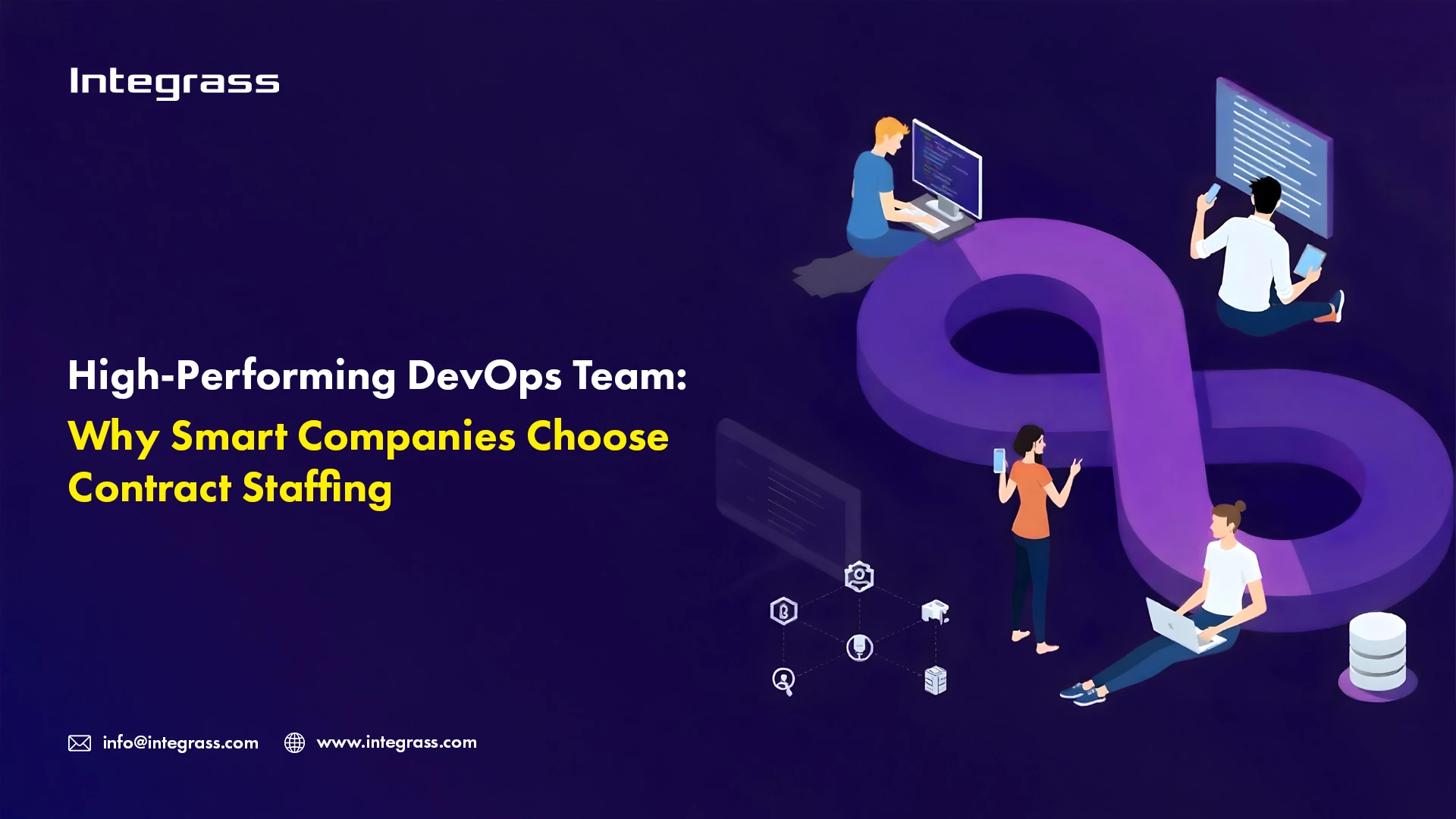IT staffing isn’t what it used to be, and that’s a good thing. The traditional 9-to-5, full-time job is no longer the gold standard for every business or worker. Contract and temporary work are rapidly becoming the go-to IT staffing solutions for businesses of all sizes. Why? Flexibility, cost-effectiveness, and access to specialized talent.
If your company is looking for agile solutions that can adapt to changing demands, contract and temporary IT staffing might just be what you’re looking for. In this article, we’ll break down why contract and temporary work is gaining momentum and why more companies are leaning on this IT staffing model to stay competitive.
What is Contract and Temporary Work?
Before we dive into the benefits, let’s clarify what we mean by contract and temporary work. Contract workers are hired for a specific project or period, and once the project ends, so does their contract. Temporary workers, on the other hand, are brought in for short-term needs, often during high-demand periods or to fill gaps when a permanent employee is absent.
Unlike traditional employees, contract and temporary workers aren’t tied to a company for the long haul. They come in, get the job done, and move on when the work is finished. This offers businesses a way to get specialized skills when they need them, without the long-term commitment.
Why More Businesses Are Turning to Contract and Temporary IT staffing
- Flexibility for Businesses
One of the biggest reasons companies are choosing contract and temporary workers is the flexibility they offer. In a fast-paced world, businesses need to adapt quickly. Sometimes you need more hands on deck for a specific project, and other times, you need to scale down after the rush has passed. Contract work allows you to adjust your workforce as needed, without being stuck with a bloated payroll.
Hiring a full-time employee means you’re locked into salary, benefits, and often a lengthy hiring process. But with contract workers, you bring in exactly the skills you need when you need them. This kind of flexibility is especially helpful for startups or growing businesses that may have unpredictable demand.
- Access to Specialized Skills
Sometimes, your in-house team just doesn’t have the specific skills you need for a project. This is where contract workers shine. Many contract workers are specialists in their fields, whether it’s in software development, IT, design, or marketing. You can hire a contract worker with the exact expertise your project requires, rather than relying on in-house employees who may not have the same level of experience.
At Integrass, we specialize in connecting businesses with top-tier talent, whether it’s for a contract or temporary position. With over 250+ IT professionals and more than 300 successful projects under our belt, we ensure you get the expertise you need, fast. Our experts handle onboarding and help build the right team for your project, while keeping costs manageable.
- Cost Savings
Let’s face it—hiring full-time employees is expensive. Between salaries, benefits, training, and office space, the costs add up fast. With contracts and temporary workers, you avoid many of these expenses. You pay them for the work they do, and once the project is over, there’s no need to keep paying for an idle workforce.
This cost-effectiveness is especially attractive to small and medium-sized businesses. Instead of carrying the weight of full-time salaries, companies can save money by hiring only when there’s work to be done. Plus, since contract workers are typically self-employed or work through an agency, the company doesn’t need to worry about providing benefits like healthcare or retirement plans.
- Faster Hiring Process
Another reason contract and temporary work is gaining popularity is the speed at which you can bring workers onboard. The traditional hiring process is lengthy—resume screenings, multiple interviews, background checks—it all takes time. But when you need someone now, contract and temporary workers can start almost immediately.
At Integrass, we understand the need for quick hires without sacrificing quality. Our 15 years of experience and certified platform experts allow us to quickly source, evaluate, and match skilled developers to your project, ensuring a smooth and speedy hiring process. You won’t have to spend weeks sifting through resumes. We do the legwork so you can focus on growing your business.
- Low-Risk Hiring
One of the biggest concerns businesses have when hiring is the risk of a bad hire. When you bring someone on full-time, there’s always the chance they won’t be a good fit, and letting them go can be a complicated and costly process. With contract workers, the risk is much lower. If things don’t work out, you simply don’t renew their contract.
This low-risk approach gives businesses peace of mind. You can try out a worker for a specific project, and if they exceed expectations, you can extend their contract. If not, there’s no messy breakup—just a mutual parting of ways.
The Rise of the Gig Economy
Contract and temporary work aren’t just good for businesses—they’re good for workers too. The gig economy is booming, with more people choosing freelance or contract work over traditional employment. Many workers enjoy the flexibility and autonomy that comes with contract work. They can choose their projects, set their own schedules, and often earn more than they would in a traditional job.
For businesses, this means access to a large pool of talent that’s ready and willing to jump into new projects. As more workers shift to contract roles, companies will have an easier time finding the right people to fill short-term gaps.
How Contract and Temporary Work Boosts Productivity
Many companies worry that contract workers won’t be as invested in their success as full-time employees. But in reality, contract and temporary workers often bring a fresh perspective and a strong work ethic. They know they need to perform well to secure future contracts, so they’re motivated to deliver high-quality results.
Because contract workers are brought in for specific tasks, they can focus entirely on the job at hand without getting bogged down by office politics or unrelated responsibilities. This hyper-focus can lead to faster project completion and improved productivity overall.
Is Contract Work the Right Fit for Your Business?
If you’re still on the fence about whether contract and temporary IT staffing is right for your business, consider your current and future needs. Do you have upcoming projects that require specialized skills? Are you looking to cut costs without sacrificing quality? Do you need to scale your workforce up or down quickly? If you answered yes to any of these, then contract work might be the ideal solution.
At Integrass, we’ve helped countless businesses find the right talent for contract and temporary positions. Our large pool of 250+ professionals and esteemed client base are testaments to the success we’ve helped businesses achieve through flexible IT staffing solutions. Whether it’s for a short-term project or a long-term contract, we take the hassle out of hiring so you can focus on what matters—growing your business.
Conclusion: The Future of IT staffing is Contract Work
As businesses face growing demands for flexibility, cost savings, and access to specialized skills, it’s clear that contract and temporary work is here to stay. Whether you’re a small business or a large corporation, embracing this IT staffing model can help you stay competitive in an ever-changing market.
Contract work isn’t just a trend—it’s the future of IT staffing. And with the right partner, like Integrass, you can navigate this shift with confidence, knowing you’ve got the talent you need when you need it.




